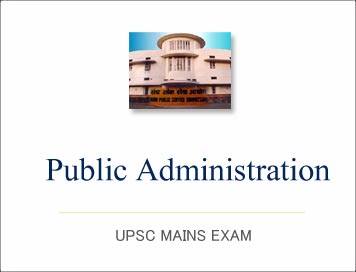Public Administration Mains 2019 : Solved Paper-2 (Question: 6)

Public Administration Mains 2019 : Solved Paper Question Paper-2 (Question-6)
SECTION-B
Q1. “The office of the District Collector has merely become a bureau for funneling government schemes, collecting statistics and an officer on attendance for unending VIP duties. Critically examine its role in the light of the recommendations of the Second Administrative Reforms Commission. 20 Marks
ANSWER: Though major activities of Rural Development department stand transferred to the PRIs/ULBs, in some States, the Collector still continues to be the nodal authority for some programmes.
Under the National Rural Employment Guarantee Act, the Collector has been designated as the District Programme Coordinator in some of the States.
The planning functions in a district have been given to DPC/MPC, the Collector coordinates with departments/ agencies involved in execution of various works.The Commission noted that some Collectors were not even aware of all the laws under which they are empowered.
The Collector is also the Chairman of a large number of Committees at the district level.
The main functions of the Collector may now include:
1. Land and Revenue administration, land acquisition, custodian of government properties, registration, recovery of public demand
2. The land revenue administration in a State operates at four administrative levels district, sub-division, tehsil/taluka/block and village.
3. The Collector/DC is the head of the revenue administration at the district level and is the custodian of government land and properties under his jurisdiction
4. At the village level, the States usually, have a designated revenue official called Patwari/ Revenue Karamchari.
5. In some States, the Executive Officer of the Gram Panchayat or GP Secretary may double up as the Patwari to handle revenue functions as well.
6. The State Revenue Law has created the `Land Revenue' machinery consisting of functionaries such as the Commissioner, the Collector, Assitant Collector, Tahsildar, Revenue Inspector, Patwari etc
7. The system of land records management varies from State to State depending upon their historical evolution and local traditions.
8. Executive magistracy and maintenance of Law and Order, Internal Security, Prisons, Remand/ Juvenile Homes
9. Through powers given to him under Sections 106 to 124 of the Cr.P.C., he and the magistracy of the district can bind the people to maintain peace, security and good behaviour
10. He also exercises powers for maintenance of public order and tranquility through Sections 129 to 148 of the Cr.P.C.
11. Deployment and movement of armed forces in the district in times of emergency and crisis is done under his guidance.
12. Licensing and regulatory functions with respect to various special laws pertaining to Arms, Explosives, Cinemas etc.
(b) Minimal accountability being the dominant norm in the political system, the Lokpal can only be an ideal institution with limited effectiveness. Explain. 20 Marks
ANSWER: ONLY FOR COURSE MEMBERS
(c) ‘Sevottam Scheme’ had great potential to reform service delivery, but opportunity is frittered away. Comment. 10 Marks
ANSWER: ONLY FOR COURSE MEMBERS
